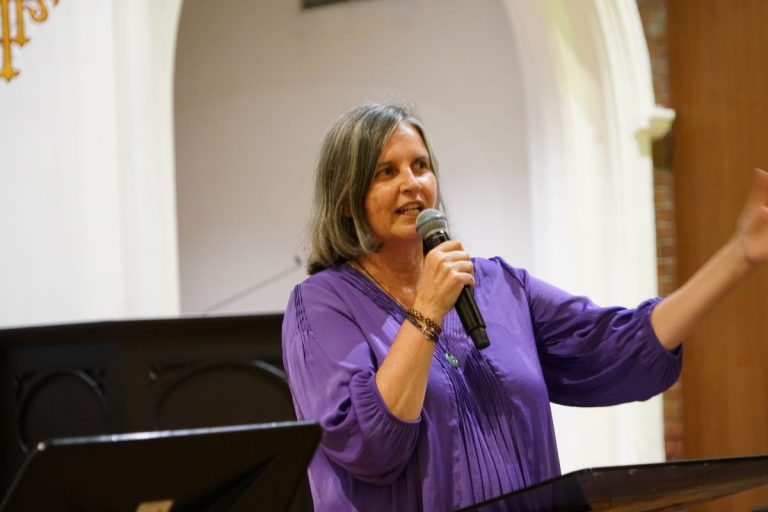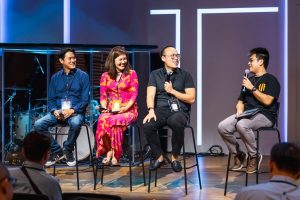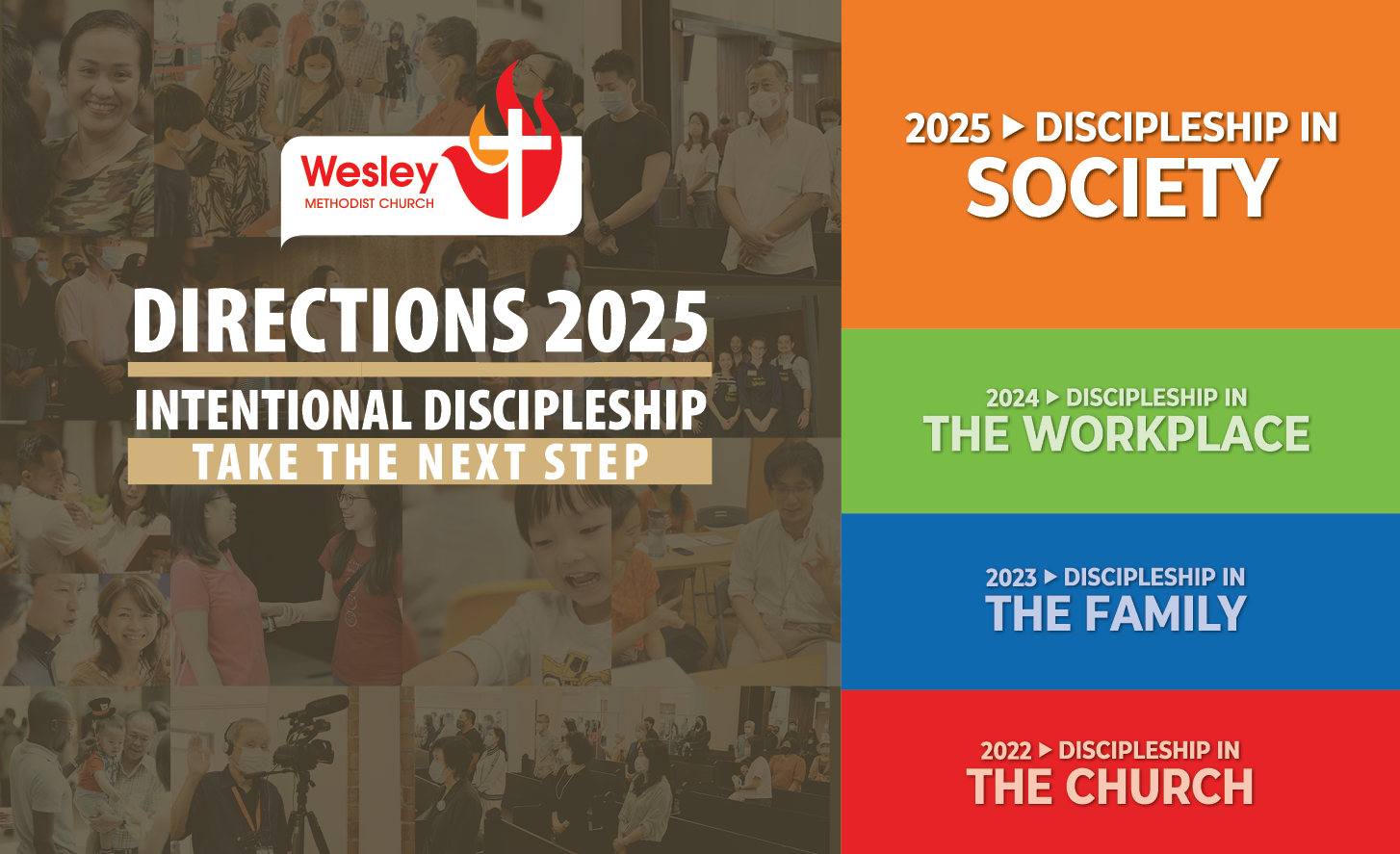A reflection on Marketplace Talk by Kara Martin on 18 April at Wesley Methodist Church.
Kara Martin is the author of Workship: How to Use your Work to Worship God and Workship 2: How to Flourish at Work. She is a lecturer with Mary Andrews College and Adjunct Professor with Gordon-Conwell Theological Seminary, Boston.
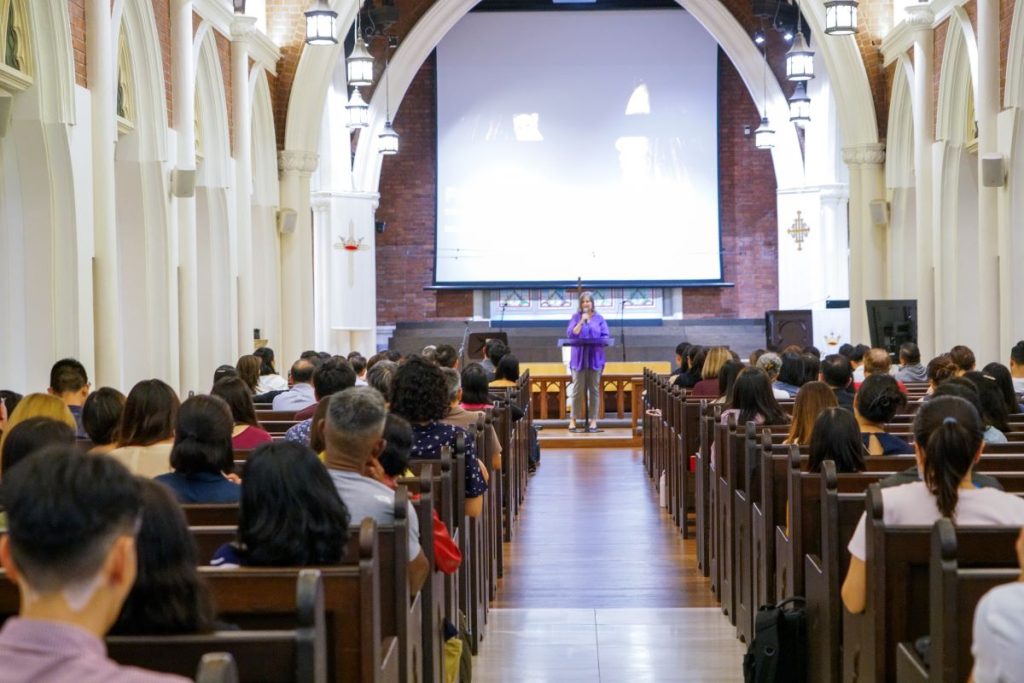
“And whatever you do, whether in word or deed, do it in the name of the Lord Jesus, giving thanks to God the Father through Him. ” Colossians 3:17
Kara Martin’s talk on integrating faith and work was an affirmation of how God has been slowly moulding my attitude towards work over the years. I used to think of my faith and work as separate entities, but Kara showed us how to bring them together in a way that is authentic and impactful – aligned with how God intended work to be. I learned that my work is not just a means to a paycheck and self-actualisation through my achievements, but also a way to live out my faith and serve God (Colossians 3:23-24).
Colossians 3:17 refers to “Word” and “Deed”. Together, they represent the totality of one’s interaction with the world. We learnt that as children of God, what we say and what we do, should be governed by the consideration of what it means to live in the realm of the risen Christ. Read in conjunction with Romans 12:1-2, all of life must be seen as an experience of worship. (Douglas Moo)
Kara shared that in Paul’s day, many who followed the Way in Colossi were enslaved men and women, toiling for no wage and at the mercy of their masters. This is the context in which he wrote his letter to the Colossians. With this in mind, Paul asked Colossians (and us) to take an eternal perspective to how we view work as working for the Lord and not our human masters, since we know that we will receive an inheritance from the Lord as a reward (Colossians 3:23-24). It is our Lord Jesus Christ that we are serving, knowing that God’s justice will rule – anyone who does wrong will be punished for their wrongdoings, and there is no favouritism (Colossians 3:25). Conversely, this serves as a reminder that if we do have a chance to lead others, we should do what is right and fair. (Colossians 4:1)
For our own personal application, we should obey our earthly masters out of reverence for Jesus, endeavour to work wholeheartedly for the Lord and leave the rest to God.
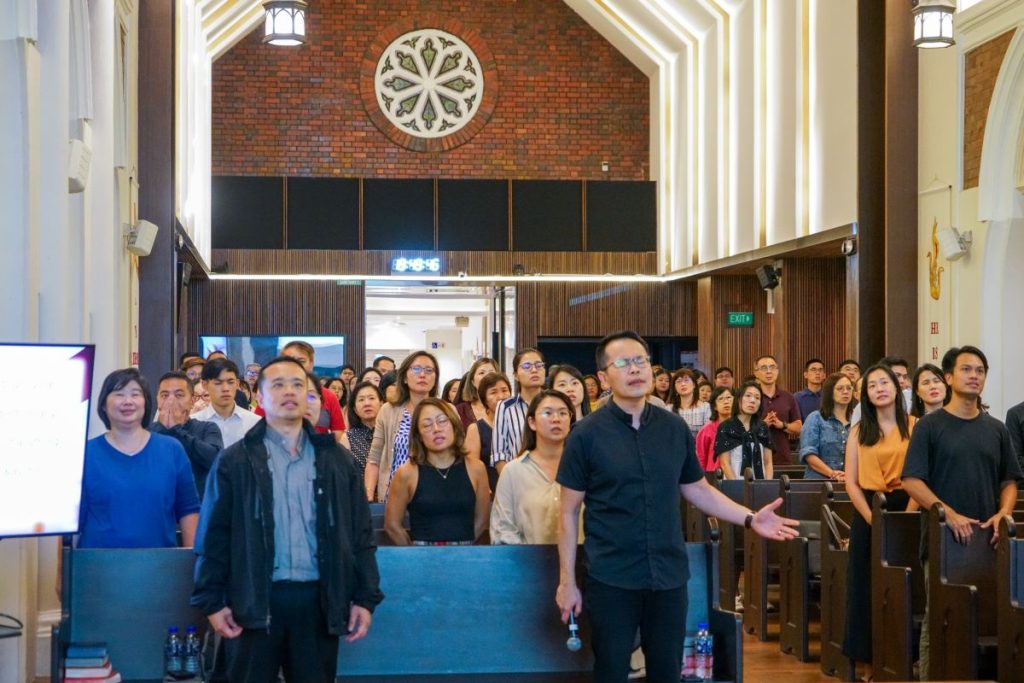
She also offers these responses:
1. Work with integrity (do work that is true)
We cannot hide from God (the Master of our work), God knows us through and through – (Psalm 139:1-4).
2. Work for the common good (do work that is good)
Jesus’ Kingdom is about the Good, reconciling everything to Himself so that people and earth can flourish.
3. Work Creatively and Beautifully (do work that is beautiful)
She shared how Genesis tells us that God made all kinds of trees grow out of the ground – they were not only of service to us and good for food, but also aesthetically pleasing and for some, fragrant.
Relationship between slave and master is not dominance and compliance, but service and service. As followers of Christ, we are to transform the workplace. Instead of overpowering one another, we should empower one another – doing everything in the name of the Lord (Colossians 3:17), for the Lord (v23) and serving the Lord (v24).
Lastly, we took a look at Jesus’ interactions as He went about His work on earth. He had compassion for the crowds, harsh words for the self-righteous, forgiveness for sinners and open arms for children, outcasts and the diseased. He restored the deserter, had grace for the betrayer, assurance for the thief, and hope for the despairing. He was indeed true, good and beautiful in every interaction. We were invited to imagine what could be different at our workplaces, and if we could make them workplaces of light.
Through Kara’s talk, I gained a new perspective on my role in the workplace: treat work not as a task, but as a mission from God. I learned to see my colleagues with fresh eyes as people God loves and to be intentional in looking for those who may be hurting. I resolved to treat them with kindness, compassion and respect and pray for those in need. She also reminded us that our identity is in Christ, not in our work. I don’t have to find my worth in my accomplishments or successes, but in God’s love and grace. This would enable me to work from a place of rest, knowing that I am where God wants me to be.
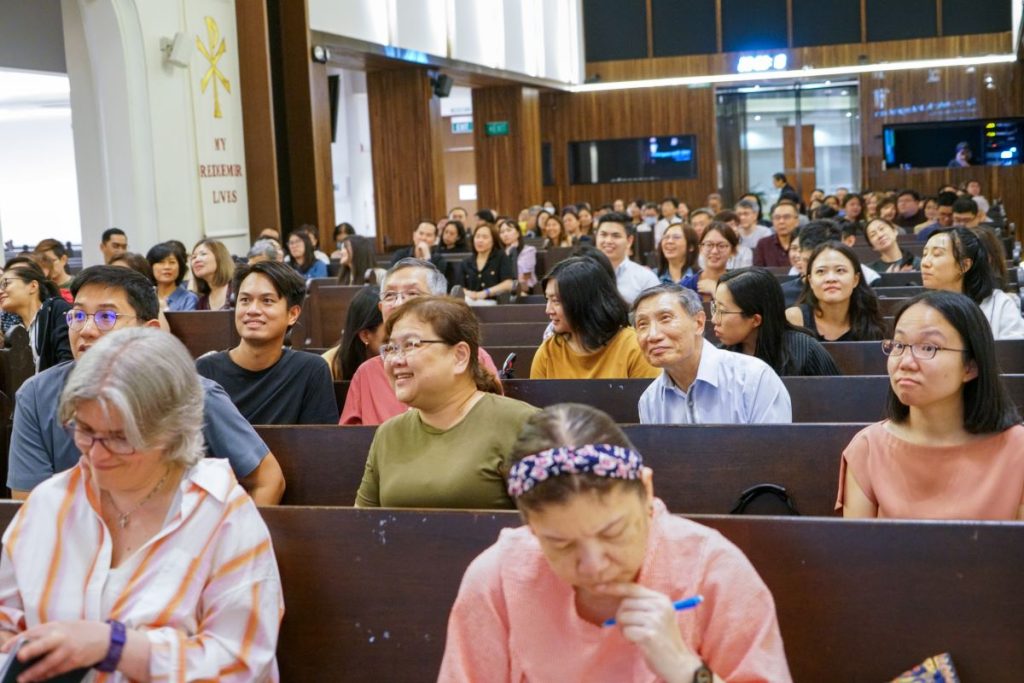
Some key Bible verses that resonated with me during the talk include:
– “And whatever you do, do it heartily, as to the Lord rather than to men.” (Colossians 3:23)
– “Just as you received Christ Jesus as Lord, continue to live your lives in Him.” (Colossians 2:6)
– “… giving joyful thanks to the Father, who has qualified you to share in the inheritance of His holy people in the kingdom of light.” (Colossians 1:12)
– “ … to offer your bodies as a living sacrifice, holy and pleasing to God – This is your true and proper worship. Do not conform to the pattern of this world but be transformed by the renewing of your mind. Then you will be able to test and approve what God’s will is – His good, pleasing and perfect will.” (Romans 12:1-2)
I hope this reflection and these Bible verses inspire you to not only integrate your faith and work, but also live out your faith in your daily work life!
Photos by William Choo

